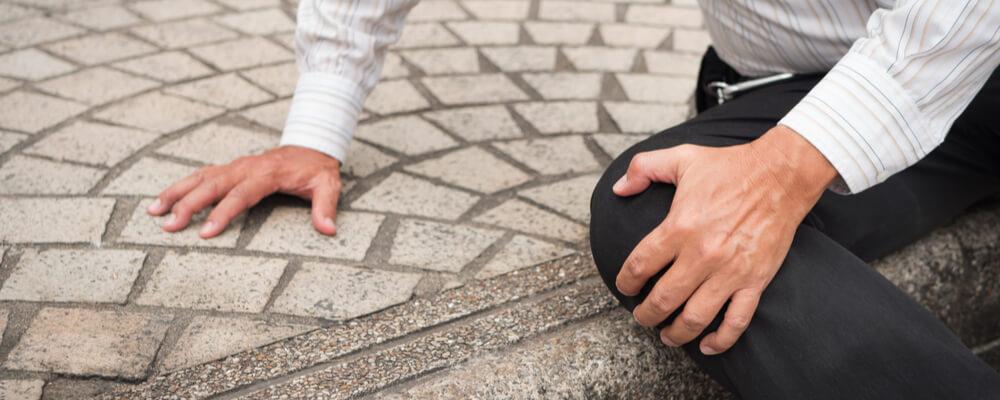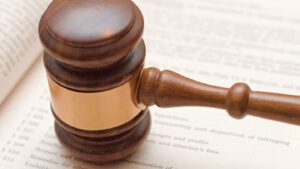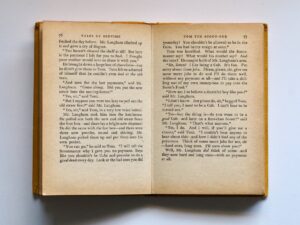The term, slip and fall refer to a personal injury claim brought when someone is hurt as a result of slipping, tripping, or falling on someone else’s property. Slip and fall accidents are a type of negligence that falls under the umbrella of premises liability. As the name implies, a slip and fall accident maintains that property owners may be held legally liable for any injuries sustained on their property as a direct result of the property owner’s negligence, which is why you’d always need defense lawyers. All property owners are required by law to maintain their properties with reasonable care and have a legal responsibility to keep their properties safe for visitors, customers, and patrons.
To a large extent, one of the most prevalent reasons for hospitalization in the United States is a slip and fall accident. Slip and fall injuries, whether they occur at ground level or from a height, can be serious and even fatal.
This post will, however, bring you up the speed on the conditions that commonly cause slip and fall accidents, as well as how to establish fault in a slip and fall accident. It will also cover all you need to know about slip and fall accident law and lawyers.
What are the Different Types of Slip and Fall Accidents?
Seasons and conditions influence the risk of slipping and falling. In the winter months, ice and snow left unattended on walkways, parking lots, stairways, and sidewalks can be dangerous. Tripping accidents can occur due to insufficient lighting in parking lots and sidewalks due to uneven ground, potholes, and cracks. Poorly lit stairways and steps, whether inside or outside, can cause significant injuries due to slips and falls. Furthermore, inside, slick floors, loose or broken flooring or steps, waxed stairs, missing handrails, curled edges, torn, worn, or bulging carpets, electrical cords or wiring haphazardly construed and left out, debris and clutter left in pedestrian walkways—can also lead to a slip and fall accident, which can result in a personal injury claim.
Who Is Responsible for a Slip and Fall?
Determining who is accountable in any personal injury case, but particularly in premises liability cases, is difficult. Maine, for example, offers a ‘comparative fault’ system, which permits you, the plaintiff, to share some of the liability or blame in negligence proceedings, even though you are the injured party. You must be able to show that you were 49 percent or less at fault in order to receive compensation. On the plus side, you will still receive compensation if you are partially at fault, but on the negative, you will only receive pay commensurate to the degree of fault assigned to you.
Though judges and juries, in general, take a commonsense approach to determine responsibility in slip and fall cases, being able to demonstrate that the property owner, i.e., the defendant, bears the majority of the ‘fault,’ is crucial to receiving proper compensation after a slip, trip, and fall accident; essentially why both parties would need slip and fall accident lawyers. But how does this work?
Basically, the state of the premises at the time of the accident will be thoroughly examined in order to identify liability. You must be able to demonstrate that the property or company owner failed to act reasonably to prevent injury to any visitors or customers who slipped and fell while accessing the premises. In most cases, liability will be shown by demonstrating that a dangerous condition on the property existed and was foreseeable and that the defendant was aware that the situation may pose an unanticipated risk to anyone who accessed the property and did nothing to remedy or fix it.
But assume a person is completely oblivious of any potentially hazardous situations on a property. In that situation, they cannot be held liable for any damage they experience as a result of the hazardous conditions on the premises.
When Should You File a Lawsuit?
The short answer is that you should seek compensation as quickly as possible for your injuries. You have the legal right to sue for damages or file a compensation claim if you were hurt at a business, such as a grocery store, at employment, or in a residential setting.
in general, time is a consideration. You have up to six years in Maine to launch a slip and fall case from the date of your accident and get your lawyers involved. Though that may appear to be a long time, lawsuits involving premises liability can take a long time. For starters, premises liability cases are more likely than any other kind of personal injury action to proceed to trial rather than be resolved out of court.
Furthermore, in a work setting, for example, it also takes time to value your losses, including gathering and calculating current and future medical expenses, time away from work, and any reduced future earning capacity, or the possibility of permanent disability, emotional distress, and additional labor costs for household assistance or chores.
Conditions that Increase the Chances of an Accident
Accidents involving slipping and falling can occur for a variety of reasons. Although people may occasionally trip and fall, there are a ton of indoor and outdoor situations that can increase the likelihood of a slip and fall mishap.
Major examples include; wet flooring, inadequately waxed floors, and damaged or bulging carpets. Slip and fall accidents can occur outside due to weather conditions such as ice and snow, as well as inadequate lighting. Poor parking lot or sidewalk care is another significant cause of slip and fall injuries.
Of course, not every situation will result in the property owner being held responsible for the injuries. In general, the owner’s liability will be determined by whether he or she takes reasonable steps to fix or at least notify others about the situation. And while it is perfectly okay for property owners to clean, wax, or polish their floors, it is essential that they issue adequate warnings or place barriers around any wet or freshly waxed or polished areas.
Why Should You Consult Slip and Fall Accident Lawyers?
A consultation with a slip and fall lawyer will assist you in making the right decisions. It will allow you to talk about what happened, the merits of your case, the legal options accessible to you, and what you can do next. However, the many clichés that characterize you, the victim, and your attorney as opportunists should not stop you. Insurance firms frequently create prejudices in order to avoid having to pay out on a policy.
Laws Regarding Slip-and-Fall Accidents
Slip-and-fall accidents on a property owner’s property, including commercial establishments, can be held accountable if:
- The defendant failed to provide a safe environment, and the plaintiff (fall victim) was hurt.
- Due to the defendant’s failure to properly notify visitors of potential safety dangers, the plaintiff was harmed.
State laws governing the responsibilities of land and property owners to maintain their properties differ. Property owners are required in many states to maintain their properties such that there is no unjustifiable danger of injury, which means they must provide safe conditions.
This could include business owners, homeowners, merchants, and other public or private property owners, depending on your state’s legislation.
Liability in Slip-and-Fall Accident Cases
There are a few things lawyers consider when evaluating culpability for slip-and-fall accidents on someone else’s property.
The following factors should be considered when determining who is responsible for your accident:
- If you fell because you were distracted (e.g. using a phone)
- If the design of the property contributed to or caused your fall (e.g. stair-steps of varying heights)
- You were injured while trespassing on someone’s property and the unsafe state was not something a reasonable person could have predicted.
Basically, the duty of care that property owners give their visitors in premises liability lawsuits normally applies to persons who are either invited to the property or are known to the defendant. Trespassers who are injured while on someone else’s property are usually not covered by this duty of care.
The following are exceptions:
Trespassers Known to the Defendant:
If a trespasser is known to the defendant and the defendant accepts their trespassing without objection, the defendant may be held accountable for injuries caused by unsafe property circumstances.
Children
Even if the child is an unknown trespasser, if a child is drawn to a feature on the defendant’s property (e.g. pool) and is harmed as a result of an unsafe condition (e.g. slippery pool deck), the defendant may be held accountable for the child’s injuries.
A Step-By-Step Guide To What To Do If You’ve Been In A Slip-And-Fall Accident
If you were injured after slipping and falling on someone else’s property, there are several measures you can do to start gathering evidence for an accident claim and improve your case.
#1. Seek Medical Assistance
Not all injuries are visible right away after a fall. Some victims of slip-and-fall accidents may not discover symptoms of an injury for days or even weeks after a fall, and others may deteriorate if medical attention is not sought immediately.
Call 9-1-1 if you’ve been critically hurt in a fall and need medical help right away. Falls often result in head and hip injuries, especially in the elderly, and require immediate treatment to avoid serious consequences.
#2. Take Photographs and Make Notes on the Accident
Start gathering documentation of how the event happened and the injury that resulted after you’ve sought medical assistance.
Take images of the accident scene, the unsafe condition(s) that caused the accident, and the subsequent injuries if you have a phone with a camera.
Make a note of the accident’s time, date, and location for your records. Any further information, such as the type of property (e.g., a commercial facility), the names of the property owners and managers, and whether the property owner offered any kind of notice about the property’s harmful state, should be recorded.
#3. Locate Eyewitnesses
Witness testimony can be helpful in pursuing legal action in the event of a slip-and-fall accident. Statements from any witnesses can serve to validate your version of events if the defendant tries to refute your tale or denies their role in the accident.
Approach any accessible witnesses (for example, other customers in a store) and respectfully request a brief description of what they observed, as well as their names and contact information for follow-up purposes.
#4. Inform the Proper Authorities
Following an accident on someone else’s property, it’s critical to contact the property owner or manager.
If you’ve been hurt on a business’s property, the owner or management in charge may ask you to fill out an accident report, which will demand a statement giving all pertinent data about the incident.
But, before speaking with an attorney, do not make any statements claiming responsibility for the accident. An accident report can be used as proof later in the claims procedure that you took the accident seriously and took the efforts necessary to document the incident.
#5. Speak with a Personal Injury Attorney
In premises liability disputes, defendants will often go to any length to avoid having to compensate persons who have been injured on their property.
Although it is not needed to employ a personal injury lawyer in order to file a slip-and-fall accident claim, it is in your best favor to do so as soon as possible because defendants frequently refuse to acknowledge culpability.



